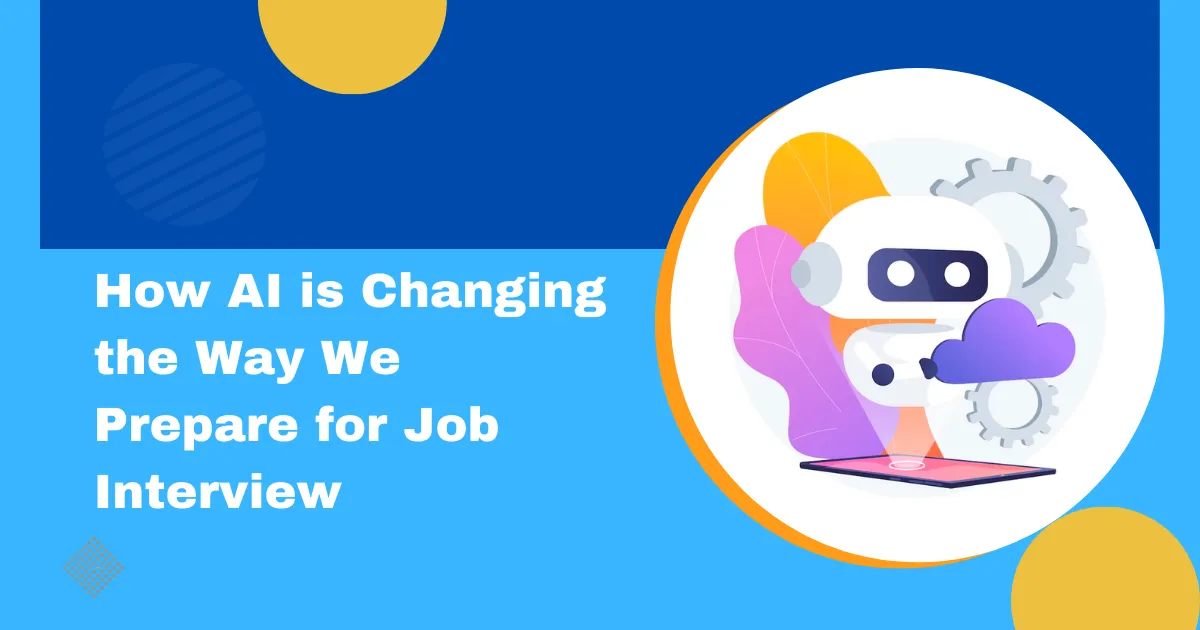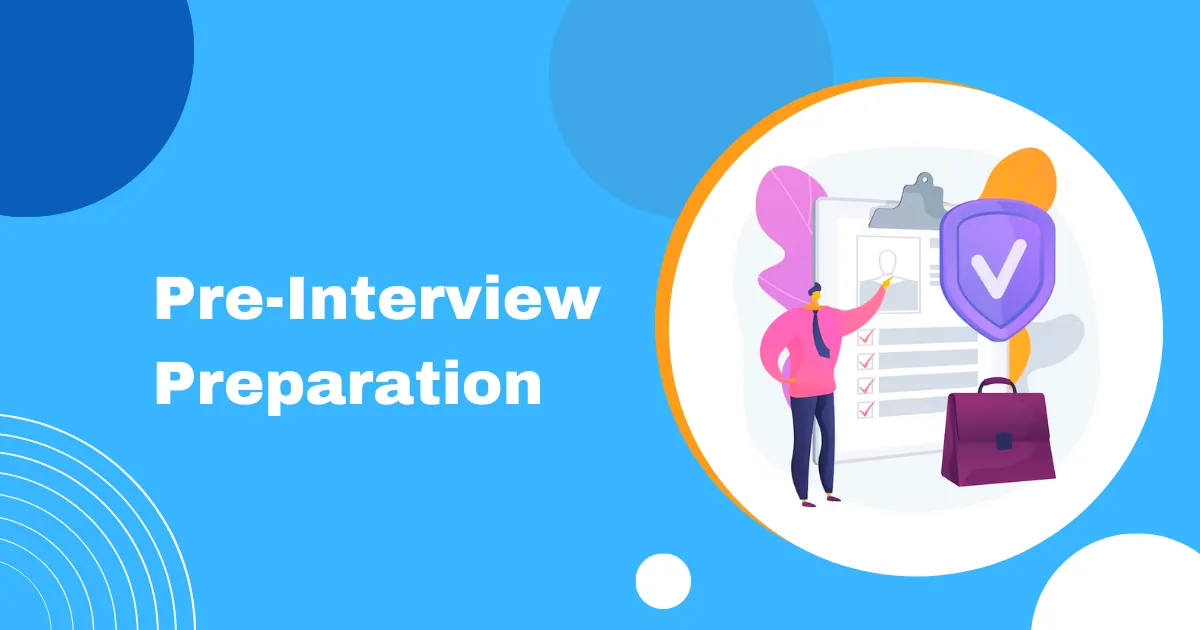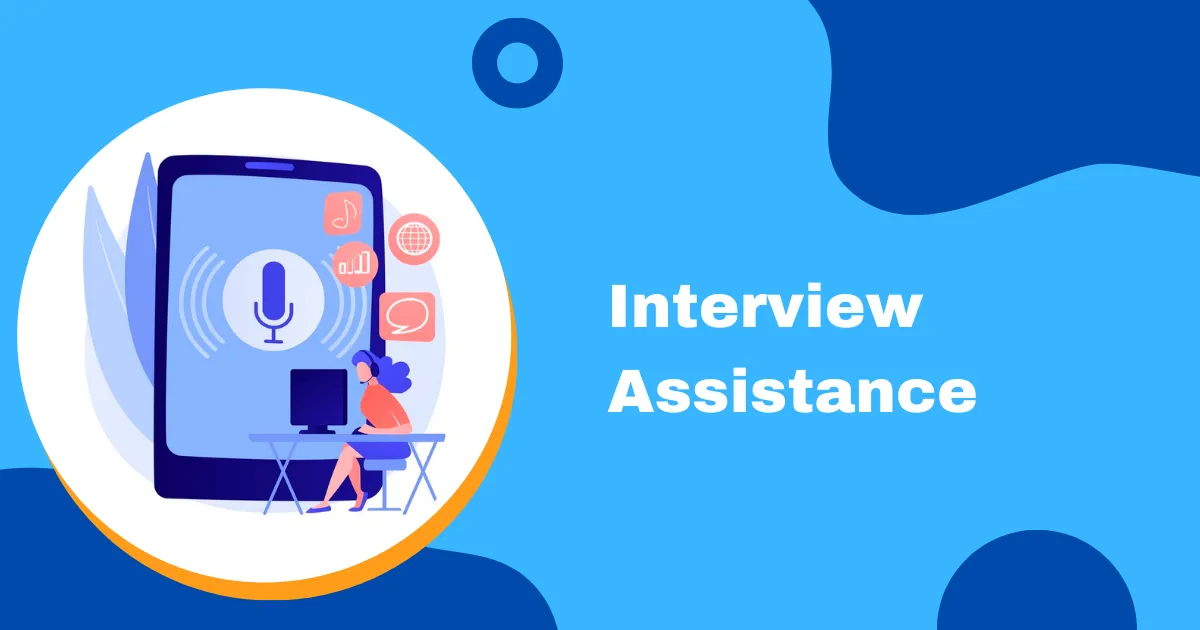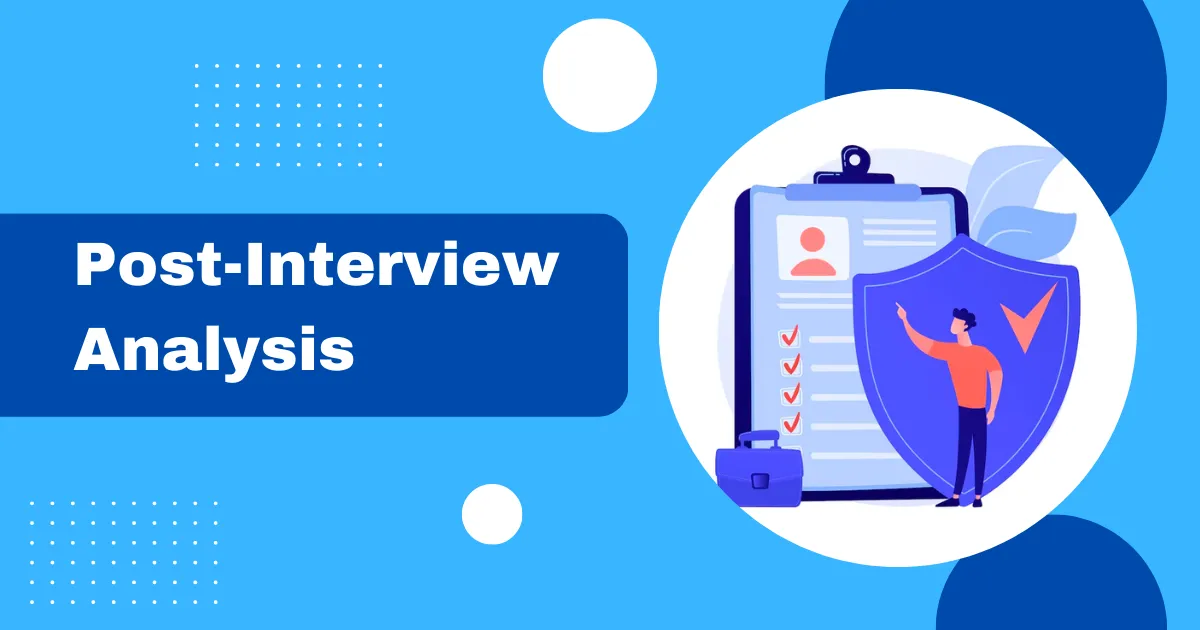How AI is Changing the Way We Prepare for Job Interview

In today's digital age, artificial intelligence (AI) is revolutionizing many sectors, including recruitment. A stunning example of this comes from LinkedIn's 2022 Global Recruiting Trends report, which revealed that 76% of hiring managers believe AI's impact on recruiting will be at least somewhat significant. The role of AI in the hiring process is shifting paradigms, and it's not just about streamlining administrative tasks.
For job seekers, AI is changing the way they prepare for interviews. The traditional methods of dusting off your resume and rehearsing common questions are evolving into more sophisticated tactics, thanks to AI-powered technology.
From AI recruitment tools identifying qualified caandidates, AI generated job description services to AI programs analyzing job descriptions; AI opens up new possibilities while saving time on repetitive tasks. Let's delve into how this game-changing technology is reshaping the recruitment landscape.
Pre-Interview Preparation

1. AI-Powered Resume Screening
A big problem in the normal hiring process is having to read through lots of resumes by hand. This task often takes a long time and can cause bias because recruiters only spend little time on each resume. Here's where software that uses AI changes how resumes are checked.
AI systems can now pick good people. They look through many job seekers to find qualified ones using set rules beforehand. These systems can look at lots of resumes, thinking about the job descriptions and other important things. They're not just good at doing things, but they also make the process fairer by lessening preference from people.
Natural language processing helps these systems understand difficult human writing in resumes. They go beyond simple keyword matching with this skill. For example, they can see if a job seeker's history as ‘Sales Executive' is right for the position of ‘Sales Manager'. Old-fashioned systems might struggle to pick up on this.
This means that people looking for work need to make their resumes friendly for AI. People should show off their abilities, schooling and past work experiences related to the job ad. This will make sure computer systems spot them easily. The layout of your resume should look good to people but also be easy and clear for machines like AI.
Understanding how AI checks resumes can help job seekers show the boss they should be picked for an interview. This is the best way for candidates to increase their chance of receiving that offer letter.
2. Personalized Interview Tips and Recommendations
Artificial intelligence is not just automating resume screening; it's also personalizing the process of preparing for job interviews. How? Through tailored interview tips and recommendations.
AI recruitment tools are designed to understand the nuances of job descriptions, correlating these with a candidate's profile. By unlocking data-driven insights from historical and candidate data, these AI tools can offer personalized tips to potential candidates. These can include suggestions on what to highlight during the interview, key competencies the hiring manager might look for, and insights into the company culture.
For example, an AI tool could analyze a job description for a project management role that emphasizes collaboration and problem-solving. By cross-referencing this with a job applicant's resume, the AI system can suggest the candidate discuss their experience in team-based projects and instances where they've implemented creative solutions to complex issues.
AI can also provide tips based on the hiring manager's style and preference. This could be gleaned from data such as the hiring manager's feedback on previous candidates or the questions they often ask.
By utilizing such personalized recommendations, job seekers can better prepare for their interviews, focusing on the aspects that resonate most with the hiring manager and potentially increasing their chances of landing the right jobs.
3. Virtual Mock Interviews with AI Feedback
Potential candidates now have the opportunity to rehearse their interviews and get feedback powered by artificial intelligence, providing a valuable edge in the competitive job market.
For instance, this AI interview tool uses machine learning algorithms to simulate realistic interview scenarios based on actual job descriptions and potential hiring manager preferences. Candidates can practice responding to questions, observe their body language and speech patterns, and receive instantaneous, objective feedback.
The system can analyze the candidate's personality, tone, pace, facial expressions, and even filler words. It uses this data to provide tips on areas of improvement, like speaking more confidently or maintaining eye contact. AI software like this enables job seekers to hone their interview skills before facing human recruiters, saving time and improving their overall performance.
The AI feedback isn't just about pointing out shortcomings, either. It also highlights strengths and gives candidates an idea of what they're doing right, which they can then emphasize in the interview.
Virtual mock interviews with AI feedback represent a technological leap in recruitment. They streamline the preparation phase, replacing time-consuming manual processes with a more efficient, fair hiring process. This demonstrates how the recruitment industry can embrace AI, unlocking data-driven insights to help find the right talent more effectively.
Neal Taparia, founder of Hearts.land, suggests using AI to help you prepare for interview questions. “Our team will often use ChatGPT to come up with a list of personalized interview questions related to the gaming sectors. Candidates should do the same to prepare for job interviews.”
Interview Assistance

When discussing AI in the hiring process, we often consider how it benefits HR teams and hiring managers. However, artificial intelligence is also helping talent acquisition professionals. It's also increasingly used to assist job seekers, particularly during interviews.
From AI-powered tools that help understand the intricacies of job descriptions to those providing real-time assistance during interviews, AI is dramatically transforming how candidates approach the hiring process. Let's delve into how this works.
1. AI-assisted Appointment Setting and Reminders for Interviews
The details of setting up interviews often make the hiring process more stressful. Arranging interviews, changing times because of unexpected events and recording these changes can be too much for job seekers. However, these problems are being solved well thanks to AI in the hiring process.
Interview scheduling tools that use AI are being used more often, making it easier to arrange interviews. These tools link with personal schedules and are made to send alerts. They help job seekers stay tidy and on time.
For example, a person has lots of things to do with many interviews for different jobs. AI software can do the job of planning and checking every interview's time, date, and type (face-to-face or online). It can also handle things like phone calls. It will then send reminders to people who want jobs, lowering the chance of chances being missed.
These AI tools can change things at the last minute, automatically moving interviews and telling people right away. This saves time and makes you feel less worried about doing things by hand. For example, leveraging an AI scheduling assistant streamlines the organization of interviews by intelligently managing schedules and reminders, ensuring candidates never miss their appointments. This tech not only saves time but also significantly reduces the stress associated with juggling multiple interviews.
Importantly, AI is also used to keep data safe. These AI tools are made to protect personal and job details, adding more trust in hiring process.
2. Virtual Interview Platforms and AI-Powered Video Analysis
Digital interview tools have changed how people get hired. As more people start working from home, AI-powered video checks are making online job interviews better. They are smarter, quicker and everyone is treated the same way.
The AI in the hiring process can now look beyond just what candidates say. It studies posture, speaking tone, face expressions and other individual features. This is more than what a human job seeker might notice, finding hidden information that can figure out if the candidate fits for this kind of work.
For example, AI programs can look at how a person talks and behaves during an interview. They check if the candidate is confident or has good feelings about others. These studies help guess how well a person might fit into the company way of working or team up with others.
One more good point is that it cuts down unfairness when hiring people. AI programs make choices using information that can be measured. This way, they don't follow hidden preferences like a person choosing from their own point of view might do. It's not about replacing human decisions but helping them with clear facts to make sure the best people are picked.
3. Real-Time Language Analysis and Feedback During Interviews
Language is very important in any interview. Now that AI has come to the hiring process, we can use it for more complete language study during interviews. Real-time language checkers and feedback programs provide a new way to help job seekers and employers. They add more polish to how people talk with each other.
These tools use AI programs to look at candidates' words for how clear they are, the right way of talking and using big words. Also checking their talk is well put together from start to finish. They can find filler words, repeats or often stopping that human recruiters might not see. The AI systems give instant suggestions during interviews, helping job seekers change how they talk. This makes their performance in the interview better.
One important thing about these tools is they can help job seekers match their answers with what the job wants. They can tell of words or phrases often used in the business. This helps to make answers more important and powerful for that place.
Also, these smart AI tools can give managers a fair look at how well candidates talk and communicate. This helps make choices and adds to a good hiring process.
As AI's job in looking at language gets more important, keeping data safe is still very needed. These tools have strong protection measures, making sure the job candidate's personal details and interview information stay secret.
Post-Interview Analysis

Once the interviews are completed, it's time to evaluate and make critical hiring decisions. Thanks to the use of AI in the recruiting process, post-interview analysis is becoming more streamlined and precise, enabling recruiters to sift through a large applicant pool and identify the best candidates with increased efficiency and accuracy.
1. AI-Driven Assessment of Interview Performance
The part of the job hiring process where people talk and show their skills, work experience, and how well they might fit in a company is very important. AI is changing how people are tested in interviews, making it better for those hiring and looking for work.
AI in the hiring process helps to fairly study how well a job candidate does during an interview. It not only looks at the answers given but also considers things like how people talk, language skills and behavior signs. By looking at these important things, AI systems can give a big fair view that human hiring people might miss because of not having enough time or accidentally being unfair.
AI lets recruiters sort out job candidates by how they do in interviews. This saves time and makes choices easier. With help from AI, HR departments can handle a lot of applicants well. They make sure only the best people are picked for job interviews.
The technology stack with tools using AI can use data to give deeper insights about a person's possible skills and how they fit the job. It can study past information and guess a job seeker's chances of success, helping to pick better people for the role.
After the interview, people can get detailed comments on how well they did. This helps them to improve in areas where maybe they didn't do so great before. In simple words, AI helps in choosing the best job seekers and also assists them to grow professionally.
2. Feedback and Recommendations for Improvement
In a normal hiring process, feedback is usually only given one way. But using AI for hiring isn't just making things automatic; it has changed how the feedback is given in a good way. Now, applicants can get helpful and positive comments instead of something that only tells them what they did wrong.
AI tools can look at and make careful comments about how well candidates did in the interview. They can judge important things like talking and not-talking communication, what is said back, sound type and skill in language use. These are just a few examples.
Unlike people who get jobs, AI tools make sure that each person gets important attention and response. It's harder for them because there are so many applicants to look at.
AI doesn't just rank people based on their performance. It also gives useful tips for places where they can improve more. It points out the places where people need to work on their skills, which can be a big chance for learning. This helps improve how well they match with job opportunities.
3. Comparative Analysis for Benchmarking
In AI-fueled hiring, comparative analysis is a powerful tool for benchmarking candidate performance. It provides hiring managers with a robust framework to identify top talent and speed up the recruitment process, enabling them to compare multiple candidates against defined parameters.
For instance, AI programs can analyze job applications, screen resumes, and compare interview responses. By reviewing a candidate's answers against a database of qualified applicants, AI can gauge their fit for a role based on historical data and defined job requirements.
The technology can also determine culture fit by analyzing a candidate's responses and behavior during an interview and comparing it to the company's defined cultural values. This level of assessment, usually a highly time-consuming process for the human brain, is efficiently handled by AI, freeing hiring managers to focus on other strategic tasks.
AI in the hiring process enables recruiters to discover passive candidates from job sites who may not have applied but fit the role based on their online profiles. This comparative analysis ensures a fair hiring process and allows organizations to maintain a high-quality candidate pool, ready for outreach whenever a suitable position opens.
Conclusion
A big change is happening in the hiring process because of artificial intelligence. It's not only about making things easier; it involves changing how people who hire look for future candidates. From getting ready for interviews to checking if they did well in them, there is a change happening.
AI systems give job managers power to look at resumes, set up interviews and find hidden candidates on websites about jobs. These abilities save time, letting HR staff focus more on the human parts of hiring like building relationships and caring for culture.
The use of good information guides this AI in choosing workers, giving detailed views about candidate skills and characters as well. In a world where fighting for the best workers is hard, this technology makes sure only those who are most skilled and ready to work get looked at for each job.
Furthermore, AI removes the guessing part from a usually slow hiring process. It uses the strength of computer programs and the complexity of human brains to make fair, information-based hiring choices. It makes getting jobs easier, making sure managers and job seekers have a fair process.
AI is not meant to replace human judgment in hiring but help it. If businesses use this technology, they can make the process of hiring workers more fair and efficient. This will help them get good people for their companies too.